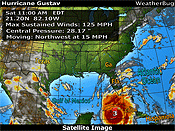“Congressmen: A Great Place To Cut Funding -- National Assessments”
by Donna Garner
4.9.11
Almost daily I continue to submit my requests to Congress, asking them to cut the federal funding of Common Core Standards, Race to the Top, and the national assessments.
Besides the obvious -- that CCS/RTTT is a federal takeover of the public schools and lies way outside the provisions of the U. S. Constitution -- American taxpayers simply cannot afford it.
Besides the cost of states’ dumping their own textbooks, standards, and tests in order to implement the Common Core Standards, the cost of the national assessments alone would be horrendous!
An education technology expert whose name I shall keep confidential explained to me how expensive the national assessments would actually be, and the costs would fall squarely on the shoulders of local taxpayers.
To take the national assessments, every student in a school (K-12) would be required to have his own individual technology device because the multi-media, interactive assessments are to be given online; and students would continually be taking formative assessments (a.k.a., periodic, benchmarked) throughout the entire school year.
The USAC Universal Service Fund, which is presently tacked onto the price of all of our cell phones and home phone bills, already supplies Internet Access (IA) at a reduced fee for every public school and library in the country.
The USAC spends $2.5 Billion each year just on telecom, IA, and building infrastructure to these schools and libraries. Therefore, the costs are very substantial already.
Recently the federal government put $10 Million into a pilot project to give Internet Access (IA) to individual school students. The federal funding for this pilot project, which provides only the IA, was eaten up almost instantly by just a few school districts.
For us to understand the scope of the problem, we must realize that states such as Texas have 1,237 separate public school districts and charters, 8,435 campuses, and over 4.8 million students. California has 1050 districts. The nation has over 35,000 districts.
Unfortunately, there is not a cost-effective way to deliver IA to every public school student without their also paying a $30 a month IA fee along with the cost of the technology device. In fact, the cost of the device itself is becoming incidental to the monthly fees over which AT&T, Verizon, and other companies are salivating.
This is similar to companies giving a free cell phone to a customer if he signs up for the two-year plan; the companies know the monthly fees will more than make up for the cost of the devices themselves.
As people in the telecommunications industry consider the money to be made under the Common Core Standards, Race to the Top, and the national assessments, talks have begun surfacing about building mesh networks around the public schools. This would allow Internet Access (IA) to everyone living around the schools (the outliers), and they could use the same IA that the feds through the USAC fees are currently purchasing at the school sites. The “gotcha” is that the outliers would be required to pay the monthly technology usage fees.
A huge fiscal problem is that building out these mesh networks around all the public schools in America would cost billions, and the USAC fees would not pay for this part.
It is easy to see why AT&T, Verizon, Microsoft, Cisco, and Dell are all planning on benefitting from the implementation of the Common Core Standards, Race to the Top, and the national assessments. [From the very first moment that Obama came into the White House, Bill Gates has been using his moneybags to promote CCS/RTTT.)
As usual, it would be the taxpayers who would have to foot the bill for these national assessments and the technology infrastructure required.
ACTION STEP:
Please contact your Congressmen and ask them to cut immediately the funding for the Common Core Standards, Race to the Top, and the national assessments.
Donna Garner
Wgarner1@hot.rr.com
=======================================
As a follow-up to this Education Week Teacher article (posted below), please read my March 18, 2011, article entitled “Taxpayers, Grab Your Wallets.”
http://www.navigator-news.com/component/content/article/3-local/251-taxpayers-grab-your-wallets
======================================
http://blogs.edweek.org/teachers/living-in-dialogue/2011/04/high_tech_testing_on_the_way_a.html
High Tech Testing on the Way: a 21st Century Boondoggle?
Excerpts from this article:
by Stephen Krashen and Susan Ohanian
When the plans to create Common Core Standards were announced, Secretary Duncan told us that it would be accompanied by assessments to enforce the standards. We were also told that developing standards would be relatively inexpensive, but developing assessments, by contrast, will be a "very heavy lift financially" (USA Today, June 14, 2009).
It is gradually becoming clear that the lift will be extremely heavy. The new tests will be computer-based, administered online, and "will make widespread use of smart technology. They will provide students with realistic, complex performance tasks, immediate feedback, computer adaptive testing, and incorporate accommodations for a range of students" (Duncan, 2010). Duncan noted that "with the benefit of technology, assessment questions can incorporate audio and video. Problems can be situated in real-world environments, where students perform tasks or include multi-stage scenarios and extended essays."
An example:
The National Education Technology Plan 2010 (U.S. Department of Education; Office of Educational Technology) describes one kind of testing that is being developed, testing that takes place "in the course of learning" (xvii) and that tries to find out what students are thinking while doing projects:
As students work, the system can capture their inputs and collect evidence of their problem-solving sequences, knowledge, and strategy use, as reflected by the information each student selects or inputs, the number of attempts the student makes, the number of hints and type of feedback given, and the time allocation across parts of the problem.
(pages 29-30: "Assessing during online learning").
Aside from the mind-control aspect of this kind of testing, how much will it cost, in addition to the cost of developing, testing and revising the new tests?
If we are going to have computer-based tests, and if they are to be delivered to students via the internet, the first requirement is that all students need to be connected to the internet. A recent article in the New York Times gives us some idea of what will be involved. The article begins by noting that money is scarce these days:
Despite sharp drops in state aid, New York City's Department of Education plans to increase its technology spending, including $542 million next year alone that will primarily pay for wiring and other behind-the-wall upgrades to city schools ... and $315 million for additional schools by 2014...
(New York Times, "In city schools, tech spending to rise despite cuts," March 30, 2011)
Buried deep the article is a statement by "city officials" that the huge expenditures for technology are primarily to make it possible for students to take computerized national standardized tests.
We can expect this to happen nation-wide. If the New York figure is extrapolated to the entire country, the cost to connect all children to the internet will be at least 50 times the cost of connecting New York City alone, or $25 billion (New York City enrolls one million students, the USA as a whole, over 60 million). This is only to connect students to the internet. The whistles and bells needed to do "computer adaptive testing" with audio and video will cost more.
Technology, of course, continues to develop all the time, and consumers have repeatedly demonstrated their willingness to discard the old and embrace the new, even at considerable expense. We can expect that after every student is connected, sooner or later the set-up will become obsolete and need to be replaced, either in part or totally. The schools, we predict, will cheerfully pay up, eager for the "newest" technology, and the computer companies will cheerfully accept their money.
The billions spent so that students can take national tests will have a huge payoff for the entire computer industry in other ways. This was enthusiastically announced by Education Secretary Duncan's Chief of Staff and former CEO of the New Schools Venture Fund, Joanne Weiss. Weiss noted that because all students will have internet access in order to be tested, technology companies can now profit from one giant national market for all their educational products:
The development of common standards and shared assessments radically alters the market for innovation in curriculum development, professional development, and formative assessments. Previously, these markets operated on a state-by-state basis, and often on a district-by-district basis. But the adoption of common standards and shared assessments means that education entrepreneurs will enjoy national markets where the best products can be taken to scale
(Weiss, 2011)…
Of course, the administration has argued that these will be new and better tests, more sensitive to growth in learning, able to chart student progress through the year, and able to probe real learning, not just memorization. Before unleashing these "improved" tests on the country, however, there should be rigorous investigation, rigorous studies to show that these measures are worth the investment. Right now, the corporations and politicians insist that we take on faith the claim that these tests are good for students. Such claims exhibit a profound lack of accountability…
The Department of Education plans to use American students as experimental subjects to try out an extremely expensive, time-consuming and dubious testing program that will engulf classrooms. If it fails, the effect on students will be devastating, with schools robbed of money, and a generation of students poorly educated, teacher professionalism subsumed by data management, and schools robbed of funds for anything but technology repair. But the testing and technology companies will win, profiting regardless of the success or failure of their products and always ready to convince us that the next versions will be better…
Dr. Stephen Krashen is a professor emeritus at the University of Southern California. He has written numerous books on his research into literacy and language acquisition. In recent years he has emerged as a persistent voice pointing towards the basic steps we should take to build literacy and strong academic skills for our students.
Susan Ohanian, a longtime teacher, has written 25 books on education, including When Childhood Collides with NCLB and co-authorship of Why Is Corporate America Bashing Our Public Schools? Since the passage of NCLB, she has run a website of resistance, www.susanohanian.org, which received the NCTE George Orwell Award for Distinguished Contribution to Honesty and Clarity in Public language. She is a fellow at National Education Policy Center and an editor at Substancenews.net…
Donna Garner
Wgarner1@hot.rr.com
 Wednesday, May 25, 2011 at 11:54PM
Wednesday, May 25, 2011 at 11:54PM 








